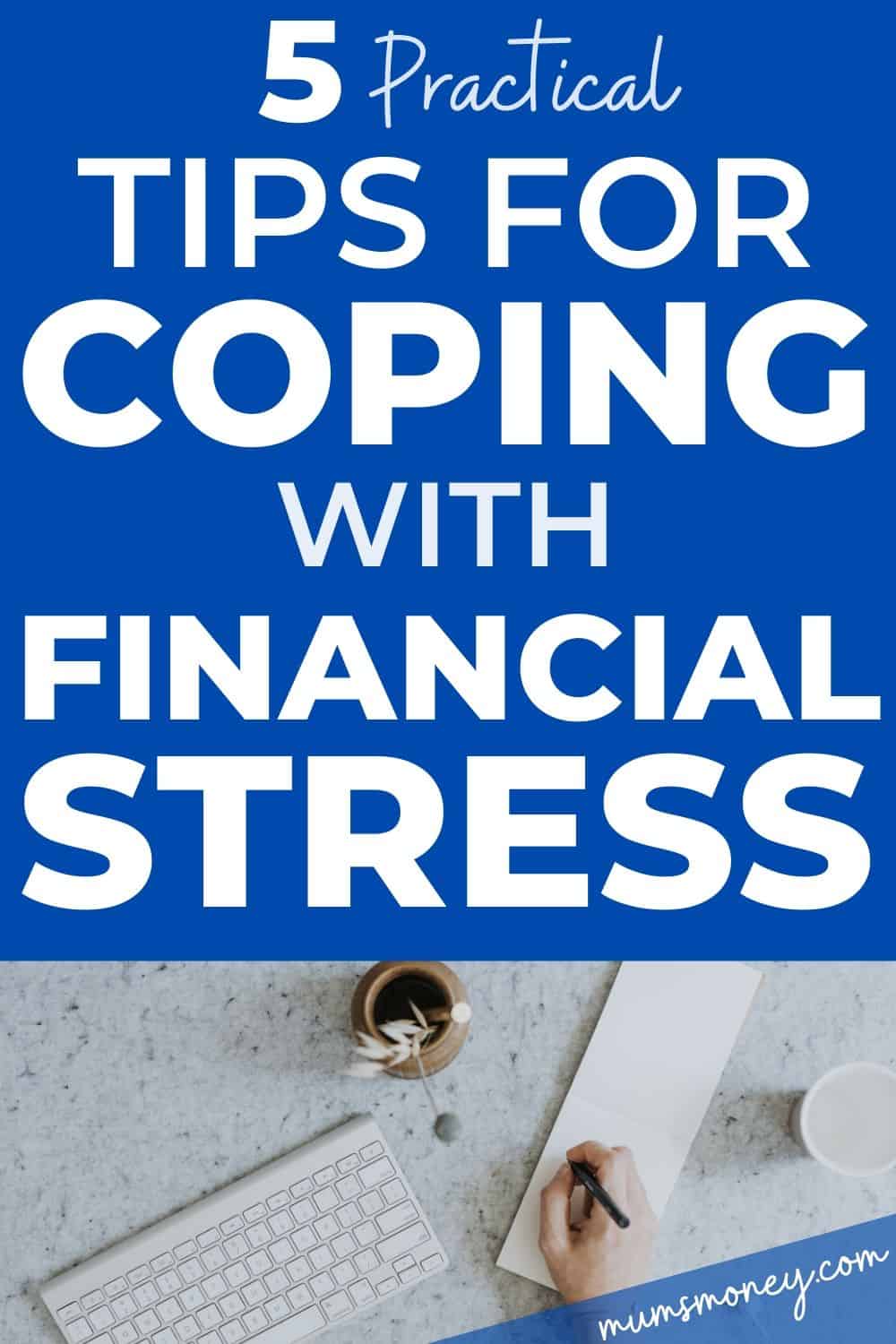Are you experiencing money worries at the moment? If so, I’m very sorry to hear that.
Sometimes it’s tough to read blogs by people who have it all figured out.
For that reason, I wanted to share some of my money weaknesses and worries in the form of a real-life situation my family recently went through.
It’s my hope that sharing will help you figure out a solution.
5 Helpful Tips for Coping With Financial Stress
My husband and I had returned from living overseas. I was pregnant at the time and we had a preschooler.
We returned home with $10,000 in our emergency fund to last us until we had regular income again.
Being pregnant, jobless and without any source of income, we were very stressed.
1. Acknowledge the problem
Acknowledging that a problem exists is the first step to fixing it.
Burying your head in the sand or going on a credit card fueled spending spree will make things one million times worse.
Whether you are overdue on a payment or facing a time without income, the hardest but most necessary step is accepting the problem exists.
Only then can you figure out what to do to fix it.
2. Talk about it
One of the major factors that keep people in debt is the inability to discuss money issues with friends and family.
Admitting that you are experiencing financial issues can be difficult but it might also be exactly what someone else needs to hear.
Being the first to admit you are having problems might help someone else to do the same.
If for no other reason make sure you tell those close to you so they know why you can’t go out for dinner or do activities that cost money.
Tell them you are more than happy to go to the park or hang out doing free stuff.
3. Assess your means
This is where you sit down and figure out all of the resources you have available to get you through desperate financial times.
Cash and funds
Work out what you have available in savings and cash accounts. These funds should be your first source of emergency income.
Only after you have accounted for savings should you look at your credit card.
It is, for this reason, I will never be without a credit card – they are great for emergencies.
But paying over 20% interest on your purchases should be sufficient motivation to reduce how regularly you use them.
Non-cash sources of income
Now, look at other ways to bring in extra income.
- You might have a spare room you could rent out.
- Look at eligibility requirements for income assistance.
- Find things you can sell
- Find a part-time/evening/casual job to help until you are back on your feet
I knew we had savings of around $10,000 plus around $20,000 available on credit cards – but it would have to be a near crisis for me to run a balance on the credit cards.
I know that as soon as we were able to re-enter the country we were eligible for child tax credits again and we did everything we could to find my husband a job within 6 weeks.
We planned ahead, using our free time to update CVs and scour job sites.
We also sorted out our storage unit and sold some things as we’d lived well without them whilst being overseas.
Finally, I’ll be investing more time into building up my freelance business to boost my income.

4. Play out your worst case scenario
This may sound a little negative but knowing how dire things could get is a great way to keep things in check.
Depending on the resources you have available your worst case scenario could mean having to ask for help from government agencies or it could just mean having to rein in spending for a few months.
Having funds in an emergency fund is what makes the difference here.
Personally, I’m comfortable with the amount we have left in savings. I know it can last a long time if we work on our leanest budget.
Our worst case scenario was having to stay with my parents for a few months whilst we built up enough money to move back into our house.
5. Look after yourself
Make sure you get regular exercise, a 3o-minute walk in the fresh air will do wonders for your mental state.
This pamphlet from the New Zealand Ministry of Health provides some excellent advice on dealing with financial stress.
Coping with financial stress is not something you have to do alone. Remember to ask for help and talk about your struggles.
And prepare for the worst – hopefully it won’t happen, but if it does you’ll have a plan in place to get you through the tough times.



